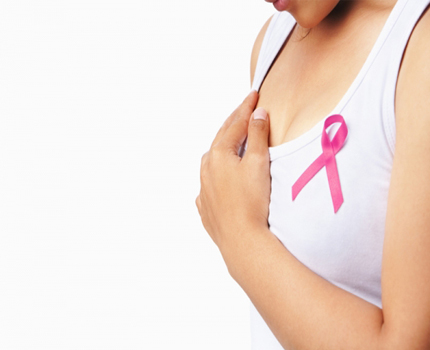 Younger women generally do not consider themselves to be at risk for breast cancer and less than five percent of all breast cancer cases occur in women under the age of 40. However, breast cancer can occur at any age, and women of every age should be aware of their personal risk factors for breast cancer. Many factors can influence your risk for breast cancer, and most women who develop breast cancer do not have any known risk factors or a history of the disease in their families.
Younger women generally do not consider themselves to be at risk for breast cancer and less than five percent of all breast cancer cases occur in women under the age of 40. However, breast cancer can occur at any age, and women of every age should be aware of their personal risk factors for breast cancer. Many factors can influence your risk for breast cancer, and most women who develop breast cancer do not have any known risk factors or a history of the disease in their families.
Some of the risk factors are as follows:
• A personal history of breast lumps or non-cancerous breast diseases with multiple biopsies.
• A family history of breast cancer, particularly in a mother, daughter, or sister.
• History of radiation therapy to the chest in young age.
• Evidence of a specific genetic mutation (BRCA1/BRCA2); women who carry defects on either of these genes are at greater risk for developing breast cancer.
• Lifestyle factors include heavy alcohol use, obesity and high intake of red meat.
• Dense breasts and race (Ashkenazi Jews).
• Some studies have suggested that recent use (during the past 10 years) of oral contraceptives (birth control pills) results in a very slight increased risk for developing breast cancer over those who have never taken them.
Delay in diagnosing breast cancer also is a problem. Many young women who have breast cancer ignore the warning signs — such as a lump or unusual nipple discharge – because they believe they are too young to get breast cancer and tend to assume a lump is a harmless cyst or other growth. Some healthcare providers also dismiss breast lumps in young women as cysts and adopt a “wait and see” approach. You must know your breasts… monthly self- examination is very important.
You can help lower your risk of breast cancer in the following ways:
• Maintain healthy BMI
• Exercise regularly
• Limit alcoholic drinks to no more than one per day
• Practice breast feeding
Although regular screening cannot prevent breast cancer, it can help find breast cancer early when it is easier to treat. Talk to your doctor about which breast cancer screening tests are right for you, and when you should have them. It is important that you know your family history and talk to your doctor about screening and other ways you can lower your risk. Dr. Shailesh Matkar, Specialist General Surgeon has special interest & expertise in breast cancer surgery, and also leads Pink Fern Breast Cancer Center at International Modern Hospital, Dubai.

